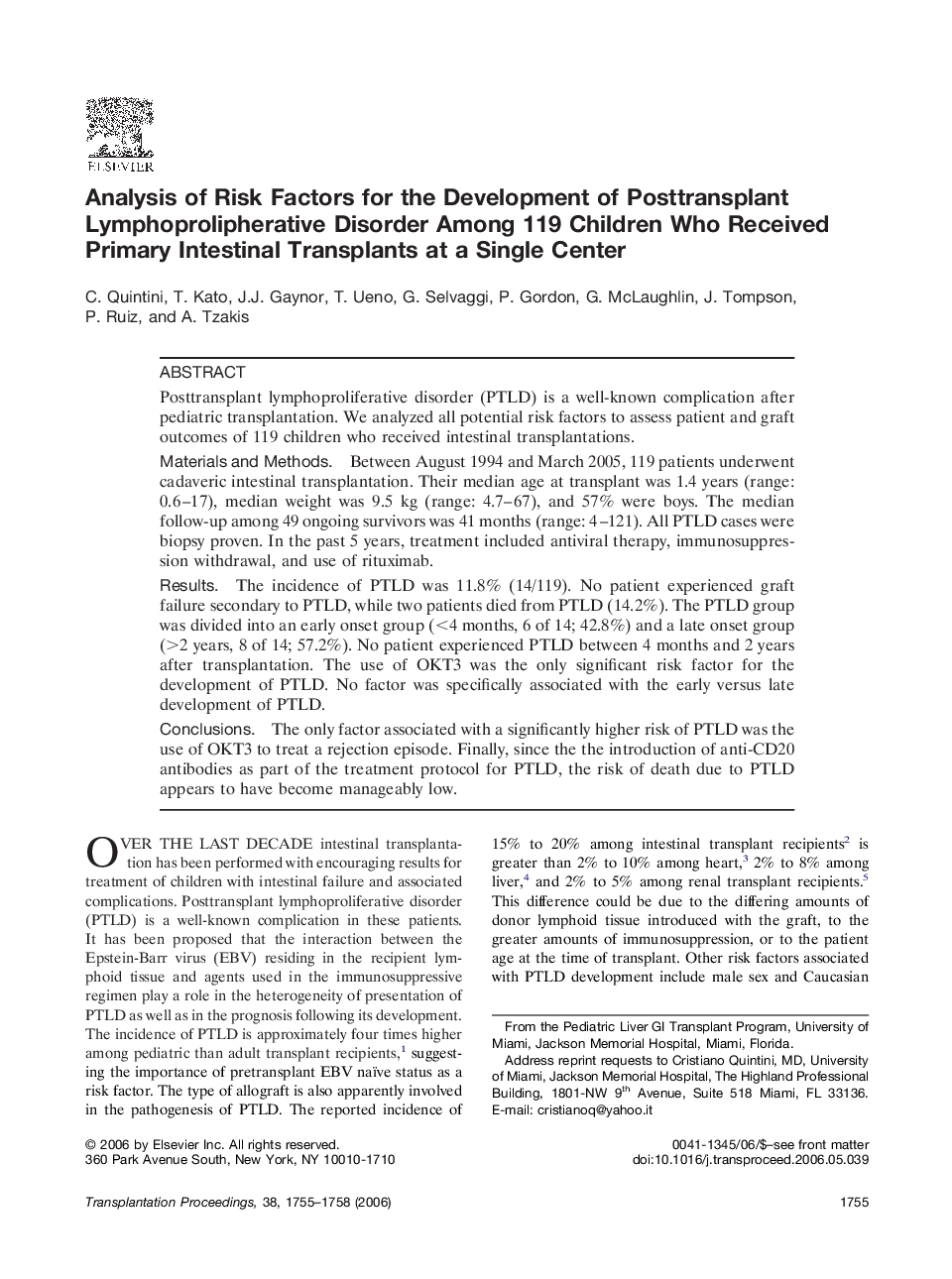| Article ID | Journal | Published Year | Pages | File Type |
|---|---|---|---|---|
| 4261128 | Transplantation Proceedings | 2006 | 4 Pages |
Posttransplant lymphoproliferative disorder (PTLD) is a well-known complication after pediatric transplantation. We analyzed all potential risk factors to assess patient and graft outcomes of 119 children who received intestinal transplantations.Materials and MethodsBetween August 1994 and March 2005, 119 patients underwent cadaveric intestinal transplantation. Their median age at transplant was 1.4 years (range: 0.6–17), median weight was 9.5 kg (range: 4.7–67), and 57% were boys. The median follow-up among 49 ongoing survivors was 41 months (range: 4–121). All PTLD cases were biopsy proven. In the past 5 years, treatment included antiviral therapy, immunosuppression withdrawal, and use of rituximab.ResultsThe incidence of PTLD was 11.8% (14/119). No patient experienced graft failure secondary to PTLD, while two patients died from PTLD (14.2%). The PTLD group was divided into an early onset group (<4 months, 6 of 14; 42.8%) and a late onset group (>2 years, 8 of 14; 57.2%). No patient experienced PTLD between 4 months and 2 years after transplantation. The use of OKT3 was the only significant risk factor for the development of PTLD. No factor was specifically associated with the early versus late development of PTLD.ConclusionsThe only factor associated with a significantly higher risk of PTLD was the use of OKT3 to treat a rejection episode. Finally, since the the introduction of anti-CD20 antibodies as part of the treatment protocol for PTLD, the risk of death due to PTLD appears to have become manageably low.
